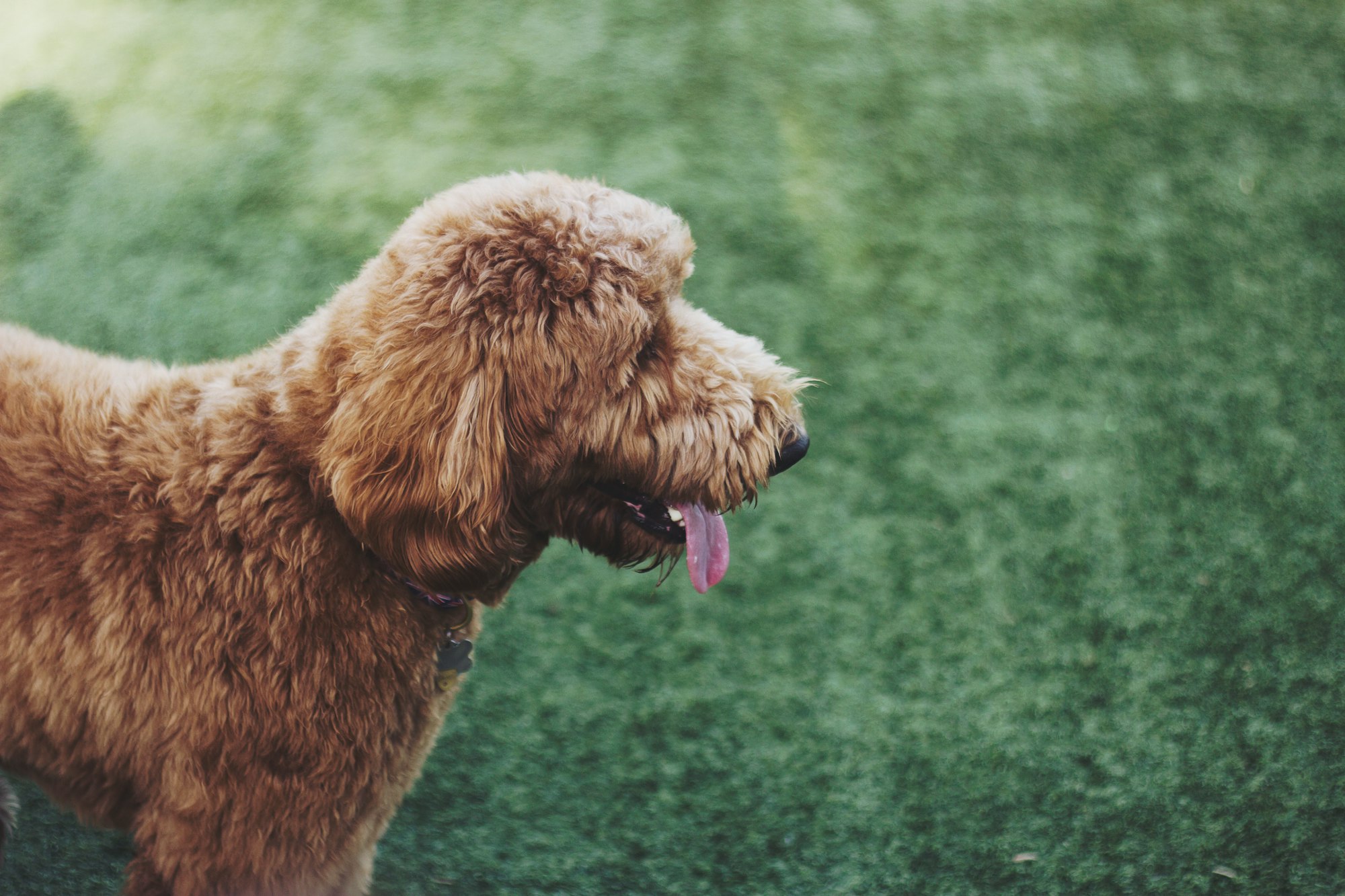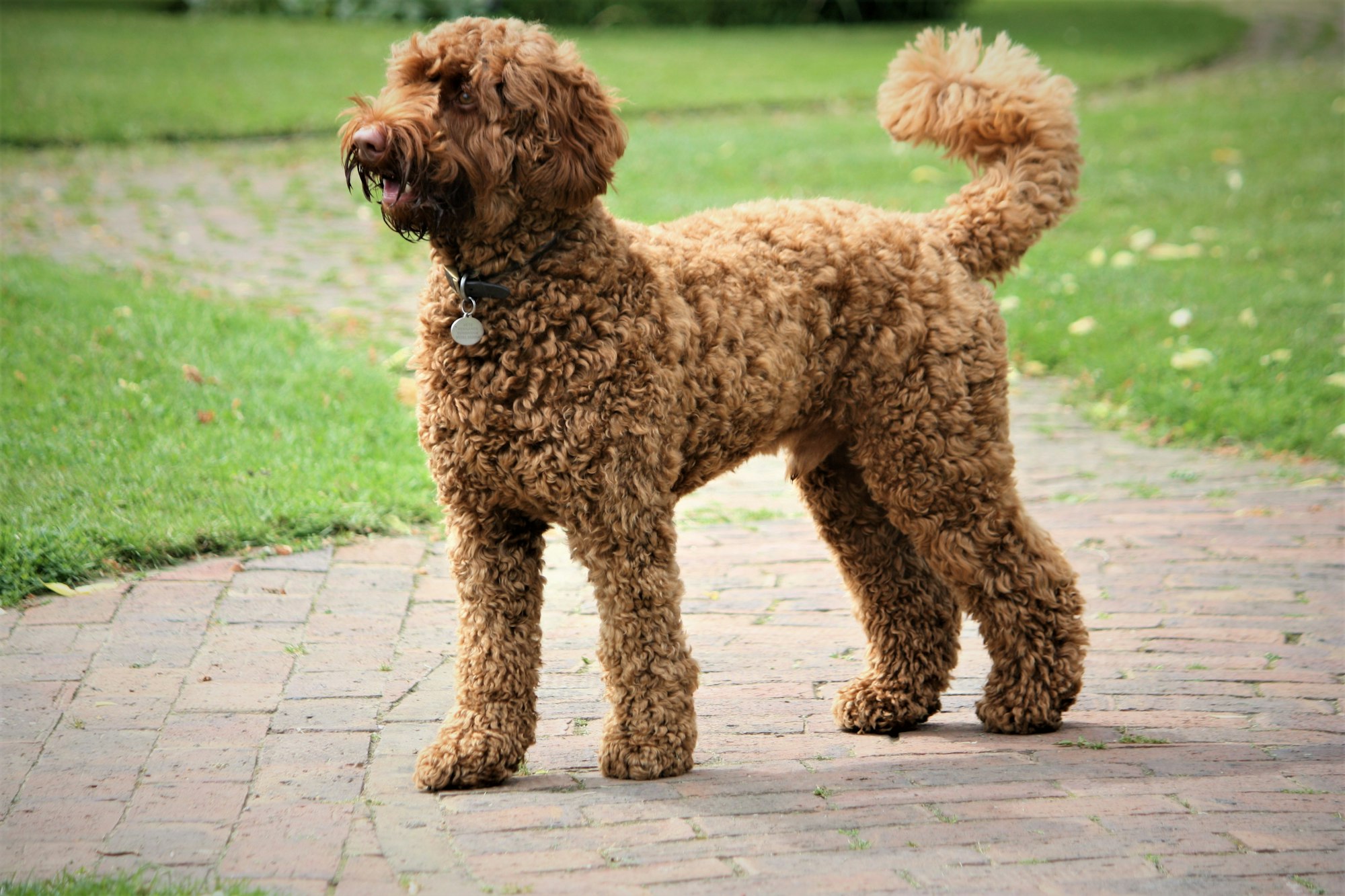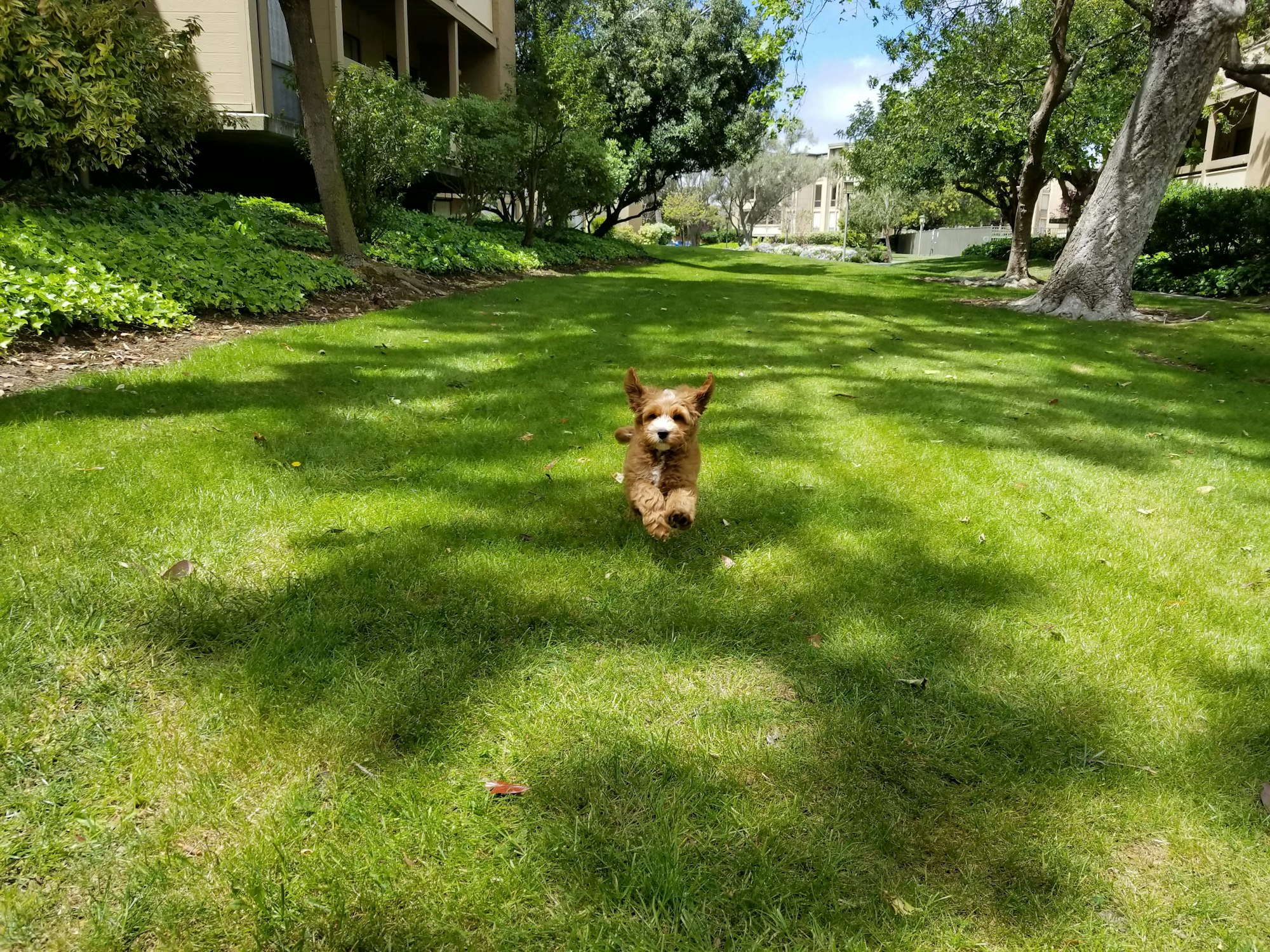Labradoodles have captured the hearts of many pet lovers around the world, renowned for their charming blend of intelligence, affection, and hypoallergenic coats. This popular hybrid dog breed, a cross between a Labrador Retriever and a Poodle, boasts a unique combination of the desirable traits from its parent breeds. Known for their friendly disposition and sociable nature, Labradoodles make excellent family pets and companions. Their popularity has surged in recent years, making them one of the most sought-after hybrid breeds.

However, with their popularity comes a range of consideratins for prospective owners, particularly regarding the cost of ownership. Owning a Labradoodle isn’t just a one-time expense but an ongoing financial commitment. The cost of ownership varies significantly and is influenced by several factors. These include the initial purchase price, which can fluctuate based on the breeder's reputation, the dog’s lineage, and physical characteristics such as coat type and color. Beyond the initial cost, there are recurring expenses to consider such as healthcare, nutrition, grooming, training, and unforeseen costs like emergency medical care.
Understanding these expenses is crucial for potential Labradoodle owners. It’s not just about being able to afford the purchase price, but also about being prepared for the long-term financial responsibility that comes with pet ownership. This article aims to delve into the various factors that affect the cost of owning a Labradoodle, offering insights and guidance to help you make an informed decision about bringing this delightful breed into your life.
Initial Purchase Price
The initial purchase price of a Labradoodle can vary widely, reflecting the growing demand and diverse nature of this hybrid breed. Generally, the cost can range anywhere from $500 to over $3000, depending on several key factors. It's essential for potential owners to understand these variables to make an informed decision when selecting their new pet.
- Breeder Reputation: One of the primary factors influencing the price is the reputation and professionalism of the breeder. Reputable breeders invest significantly in the health and well-being of their breeding dogs and puppies. This includes genetic testing, quality veterinary care, proper socialization, and adherence to ethical breeding standards. Breeders with a well-established reputation often charge more, but this can be a reflection of the quality and health of the puppies.
- Location: The geographical location of the breeder can also impact the price. In areas where Labradoodles are in higher demand, or where the cost of living is higher, prices may be steeper. Conversely, in regions with more breeders and less demand, prices might be more moderate.
- Pedigree and Lineage: The puppy's lineage is another significant price determinant. Labradoodles from a line of award-winning or pedigree parents can command higher prices due to their perceived superior genetics. Some breeders might provide documentation of the puppy's lineage, which can assure the buyer of the dog's genetic background and potential health and behavioral traits.
- Coat Type and Color: Labradoodles come in a variety of coat types and colors, which can also affect the price. They can have wool, fleece, or hair coats, each requiring different levels of grooming and care. Rarer coat colors or those in high demand might be priced higher. For instance, a Labradoodle with a unique coat pattern or a non-shedding coat might be more expensive than those with more common coat types and colors.
Understanding these factors can help potential Labradoodle owners budget appropriately for their new pet. It's important to remember that while the initial purchase price is a considerable expense, it's just the beginning of the financial commitment to a new furry family member. Buyers should consider not only their budget for the initial purchase but also the ongoing costs of raising and caring for a Labradoodle.

Healthcare Costs
When bringing a Labradoodle into your home, it's crucial to understand and budget for the various healthcare costs associated with their well-being. Proper healthcare ensures a happy and healthy life for your furry companion. Here are some key aspects to consider:
Importance of Initial Veterinary Check-Ups and Vaccinations:
- As soon as you bring your Labradoodle puppy home, scheduling an initial veterinary check-up is essential. This visit allows the veterinarian to assess the puppy's overall health, provide necessary vaccinations, and address any immediate concerns.
- Vaccinations are crucial to protect your Labradoodle from common canine diseases such as distemper, parvovirus, and rabies. These vaccinations not only safeguard your pet's health but also prevent potential outbreaks in your community.
Potential Health Issues Specific to Labradoodles and Their Associated Costs:
- Labradoodles are generally healthy dogs, but like all breeds, they can be prone to certain health issues. Common concerns include hip dysplasia, elbow dysplasia, eye problems, and skin allergies.
- Treating these health issues can be costly, involving veterinary visits, diagnostic tests, medications, and sometimes surgery. It's crucial to be financially prepared for unexpected health expenses.
Regular Health Maintenance: Deworming, Flea Prevention, and Annual Check-Ups:
- Deworming and flea prevention are routine healthcare measures to ensure your Labradoodle's well-being. Regular deworming helps control intestinal parasites, while flea prevention prevents infestations that can lead to discomfort and skin issues.
- Annual check-ups with your veterinarian are essential for preventive care. During these visits, your Labradoodle's overall health will be assessed, vaccinations updated, and any emerging health concerns addressed. Detecting and treating health issues early can save both money and your pet's well-being.
Understanding the importance of these healthcare aspects and budgeting for them is vital for responsible pet ownership. While healthcare costs can vary depending on your location and the specific needs of your Labradoodle, setting aside funds for routine check-ups and potential emergencies will ensure that your furry friend enjoys a long and healthy life.

Training and Socialization
Training and socialization are key components of raising a well-behaved and balanced Labradoodle. They play a significant role in shaping your dog's behavior and ensuring they are a happy and harmonious part of your family. Here are important considerations regarding training and socialization costs:
The Cost of Professional Training Classes:
- Professional training classes are an option for Labradoodle owners who want to ensure their dog receives expert guidance. These classes are typically conducted by certified dog trainers who teach essential obedience commands and address behavioral issues.
- The cost of professional training classes can vary widely depending on factors like the trainer's experience, the duration of the classes, and the specific training goals. On average, you can expect to pay anywhere from $50 to $150 per hour-long session.
Importance of Early Socialization and Training for Labradoodles:
- Labradoodles are known for their friendly and sociable nature, but proper socialization from a young age is crucial to ensure they grow up to be well-adjusted adults. Early exposure to various people, animals, environments, and experiences helps prevent fear and aggression issues later in life.
- Basic obedience training is also essential for Labradoodles to understand boundaries, follow commands, and be safe in various situations. Well-trained Labradoodles are more enjoyable to be around and can be taken to public places with confidence.
DIY Training vs. Professional Help: Costs and Benefits:
- DIY training is an option for budget-conscious Labradoodle owners. There are numerous books, online resources, and videos available that provide guidance on training your dog at home. This approach can be cost-effective but may require more time and patience.
- Professional help, while more expensive, can offer faster and more effective results, especially if you're dealing with specific behavioral issues. Trainers can provide personalized guidance and address individual challenges.
- The choice between DIY training and professional help depends on your budget, time availability, and the specific needs of your Labradoodle. Some owners opt for a combination, starting with professional classes and then continuing training at home.
Investing in proper training and socialization for your Labradoodle is an investment in their well-being and the quality of your relationship with them. Whether you choose professional training or decide to train your dog yourself, consistency, patience, and positive reinforcement are key to achieving desirable behavior and a happy, well-adjusted Labradoodle.
Feeding and Nutrition
Proper nutrition is a cornerstone of Labradoodle health and well-being. What you feed your Labradoodle can significantly impact their overall health and vitality. Here are important considerations regarding feeding and nutrition costs:
Overview of Dietary Needs for Labradoodles:
- Labradoodles require a balanced and nutritious diet to thrive. Their dietary needs include high-quality protein, essential fats, carbohydrates, vitamins, and minerals.
- As a breed known for its potential for allergies, it's important to choose food options that are free from common allergens such as wheat, soy, and artificial additives.
Cost Comparison of Different Types of Dog Food:
There are various types of dog food available, each with its own price point:
- Premium Dog Food: High-quality commercial dog food, often formulated to meet specific breed or age requirements, can be more expensive but is designed to provide optimal nutrition.
- Homemade Diet: Some owners prefer to prepare homemade meals for their Labradoodles, which can be cost-effective but requires careful planning to ensure balanced nutrition.
- Raw Diet: A raw diet, including raw meat and bones, is another option that some owners choose. It can be expensive and requires meticulous attention to food safety and dietary balance.
Impact of Diet on Long-Term Health and Associated Costs:
- The choice of diet can have a significant impact on your Labradoodle's long-term health. High-quality nutrition can lead to a healthier coat, better digestion, and improved energy levels.
- Conversely, a poorly balanced or low-quality diet can lead to health issues, including allergies, obesity, and dental problems. Treating these issues can result in costly veterinary bills.
- It's important to consult with your veterinarian to choose the right diet for your Labradoodle's specific needs. They can provide guidance on selecting commercial dog food brands or formulating homemade diets that meet all nutritional requirements.
Understanding the dietary needs of your Labradoodle and budgeting for high-quality nutrition is essential for their well-being. While premium dog food may have a higher upfront cost, it can contribute to better long-term health, potentially reducing veterinary expenses associated with diet-related health issues. Ultimately, providing your Labradoodle with a balanced and nutritious diet is an investment in their health and happiness.

Grooming Expenses
Grooming is a crucial aspect of Labradoodle care, and understanding the grooming needs and associated costs is essential for responsible ownership. Here's an overview of grooming expenses for Labradoodles:
Grooming Needs of Labradoodles: Frequency and Costs:
- Labradoodles are known for their unique coats, which can be curly, wavy, or straight. They have hair that keeps growing, similar to humans, rather than shedding like most dogs. This means they require regular grooming to prevent matting and tangling.
- The frequency of grooming sessions can vary depending on the coat type, but most Labradoodles need grooming every 6 to 12 weeks. Grooming includes bathing, brushing, trimming, and nail care.
- The cost of grooming can also vary widely depending on factors like the dog's size, coat length, and the groomer's rates. On average, you can expect to pay between $50 to $100 per grooming session.
Professional Grooming vs. At-Home Grooming Supplies:
- Many Labradoodle owners opt for professional grooming services, especially if they have little experience or the dog's coat requires specialized care.
- Professional groomers are trained to handle Labradoodle coats and can ensure that the dog is properly cleaned, trimmed, and styled.
- At-home grooming supplies, such as brushes, combs, and shampoos, can be more cost-effective for regular maintenance between professional grooming sessions. However, learning to groom your Labradoodle at home may require time and practice.
Long-Term Grooming Expenses Throughout a Labradoodle’s Life:
- It's important to consider the long-term grooming expenses associated with Labradoodle ownership. Over the course of their life, grooming costs can add up significantly.
- Labradoodles typically live 10 to 15 years, and if you opt for professional grooming every 6 to 12 weeks, you'll incur grooming expenses throughout their lifespan.
- Additionally, the costs may increase as the dog ages and requires more specialized care or grooming for health reasons.
Proper grooming is not only about keeping your Labradoodle looking good but also ensuring their comfort and well-being. Neglecting grooming needs can lead to painful matting, skin issues, and discomfort for your dog. Budgeting for regular grooming expenses is a necessary part of Labradoodle ownership, and whether you choose professional grooming or groom at home, it's an ongoing commitment to your pet's care.
Conclusion:
In conclusion, owning a Labradoodle is a rewarding experience, but it comes with financial responsibilities. The cost of ownership varies depending on factors such as the initial purchase price, healthcare expenses, training and socialization, feeding and nutrition choices, and grooming needs. It's crucial for prospective Labradoodle owners to budget for these expenses to ensure the well-being of their furry companions.
Responsible pet ownership goes beyond affection and care; it also requires financial preparedness. By understanding and planning for the costs associated with Labradoodle ownership, you can provide your dog with a happy, healthy life while enjoying the love and companionship they bring to your family.
FAQs
- What is the average lifespan of a Labradoodle?
- Labradoodles typically have a lifespan of 10 to 15 years, depending on their genetics and overall health.
- Are Labradoodles hypoallergenic?
- Labradoodles are known for their hypoallergenic coats, which may be more suitable for individuals with allergies. However, individual reactions can vary.
- Do Labradoodles require a lot of grooming?
- Yes, Labradoodles need regular grooming to prevent matting and maintain their coat health. The frequency of grooming depends on the type of coat they have.
- What should I feed my Labradoodle?
- Labradoodles require a balanced diet with high-quality dog food. Consult with your veterinarian to choose the right food for your dog's specific needs.
- How much exercise do Labradoodles need?
- Labradoodles are an active breed and require regular exercise to stay healthy and happy. Daily walks and playtime are essential.
- Are Labradoodles good with children and other pets?
- Labradoodles are known for their friendly and sociable nature, making them excellent family pets. Proper socialization from a young age is important for interactions with other pets.
- What should I budget for Labradoodle ownership?
- Budget considerations should include the initial purchase price, ongoing healthcare costs, grooming expenses, training, and food. It's important to be financially prepared for the lifetime of your Labradoodle.




